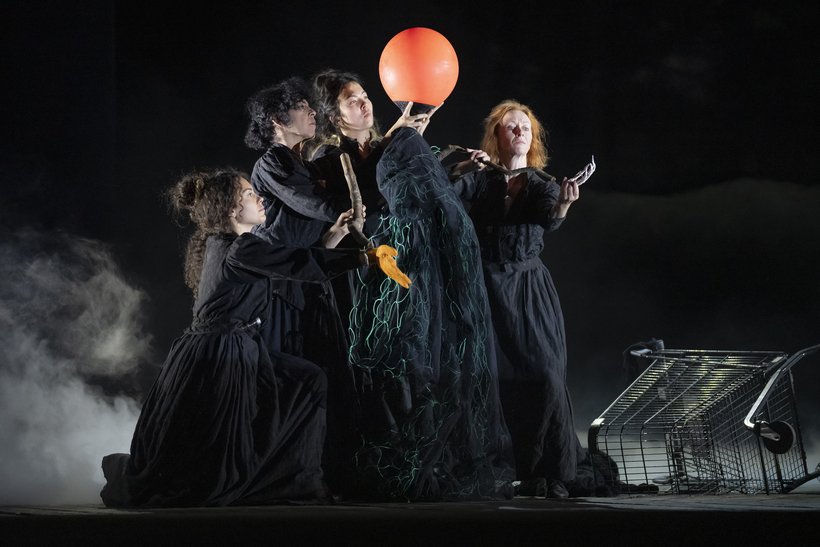Ships keep crashing by the sea cliffs near your settlement on the edge of nowhere, yet you light no fires in a storm to warn them away. You wait for them to split, kill any survivors, and salvage the cargo. You call it God’s bounty.
Such is the harrowing premise of The Wreckers, the obscure masterpiece of the doughty, once far-from-obscure Dame Ethel Smyth (1858–1944). A major general’s daughter and women’s activist who once shared the same jail cell with her proud sister suffragette Emmeline Pankhurst, Smyth the composer was no dabbler. Defying her father, she studied her craft in Leipzig, in the ambit of Brahms. At the conservatory, where she did not remain for long, she impressed Tchaikovsky.
“I stand or fall by The Wreckers,” Smyth said. Dismayed by the butchered premiere in Leipzig in 1906, she physically snatched the orchestra parts and skipped town. Even so, she found new champions for the work in such maestros as Sir Thomas Beecham, Bruno Walter, Gustav Mahler, and Sir John Barbirolli. Some plans to produce it panned out. Blame force majeure—war, Mahler’s resignation from the Vienna Court Opera—for those that did not.
Rare, more recent revivals notwithstanding, The Wreckers has remained in limbo. But that may be about to change. This summer, Glyndebourne opened its festival season with a thunderous new production of The Wreckers. Glyndebourne’s music librarian Martyn Bennett has established a reliable new performing edition of the score, which is sung, apparently for the first time, in the American philosopher-poet Henry Brewer’s high-toned original French. To experience Les Naufrageurs (as Brewer called it), even on video, is to plunge headlong into a maelstrom.

If you can handle the relentless intensity (and that’s no rhetorical “if”), the vigor, passion, color, and intermittent lyricism will sweep you away. Smyth paints seascapes like Turner’s, surging with massive groundswells, casting off spindrift in the flight of a solo flute or fiddle. Her ghoulish zealots praise their God in psalms and anthems of hymnic grandeur. Is it incongruous when a sex-crazed, spiteful teenager takes a few pages from Carmen’s playbook? Strange to tell, not really.
Glyndebourne’s music director Robin Ticciati catches Smyth’s craftsmanship and striking color sense as surely as her visceral power. The production, by Melly Stills, is modern-dress, Spartan in décor, and haunted by the masked souls of dead castaways, whose wordless voices swirl in and out of Smyth’s phantasmagoria.
And the cast is epic. As Thurza, the lighter of forbidden fires, the mezzo-soprano Karis Tucker is a pillar of defiance, but also a woman whom love ennobles. As Marc, her adulterous partner in capital offenses, the tenor Rodrigo Porras Garulo, matches her stamina, conviction, and sheer eloquence. Also, he looks like a movie star. (Next time, can he sing Cavaradossi?)
Watch, too, for the soprano Lauren Fagan as the mean girl Avis; the strapping mezzo-soprano Marta Fontanals-Simmons as the teenage lad Avis tries to wind around her little finger; and the glowering bass-baritone Philip Horst as Pasko, Thurza’s cradle-robbing husband and the Wreckers’ very own Dark Lord.
The Wreckers is the streaming Opera of the Month on the Glyndebourne Encore Web site
Matthew Gurewitsch writes about opera and classical music for AIR MAIL. He lives in Hawaii

